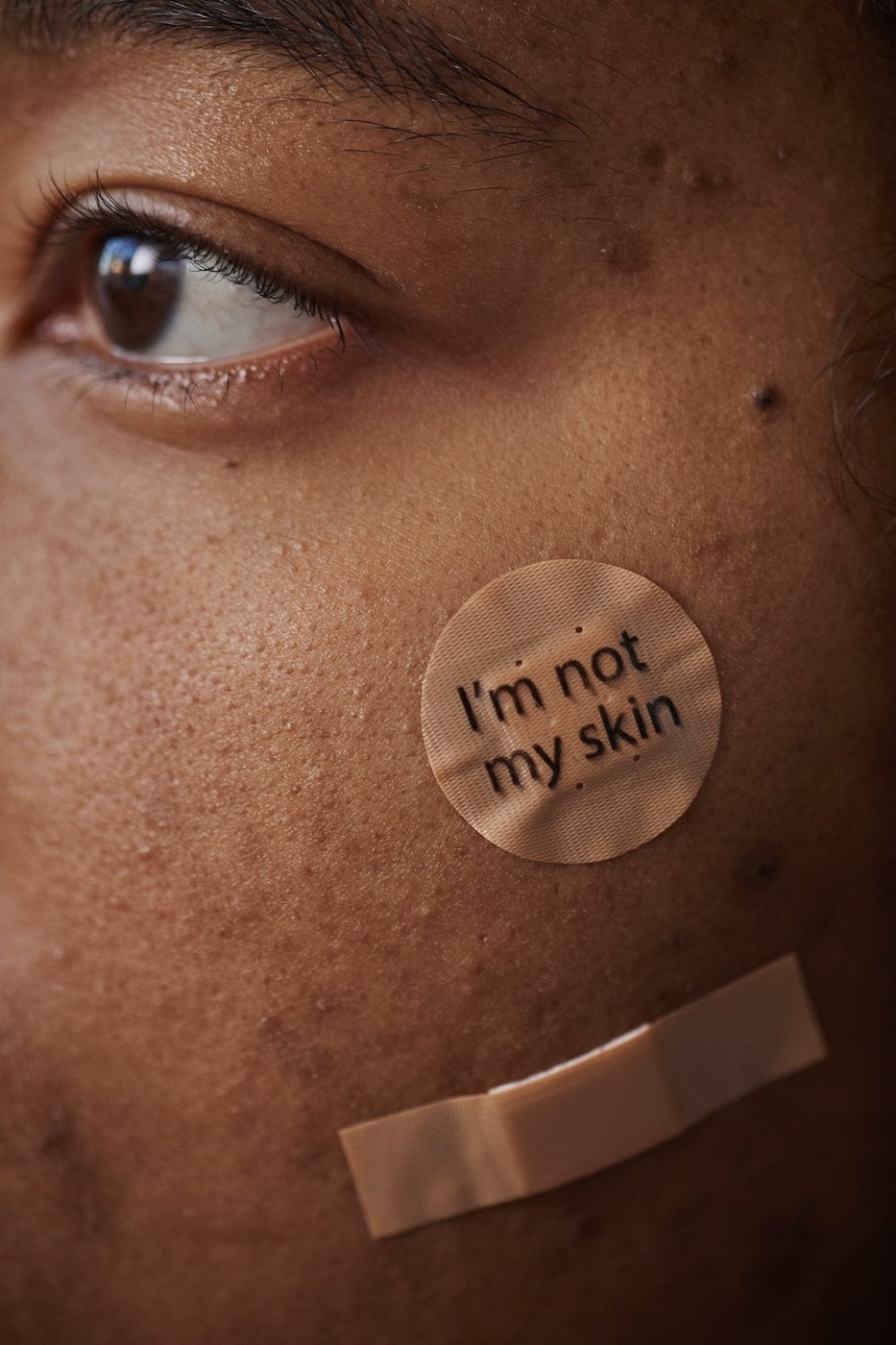PCOS is a hormonal problem that can affect your health and pregnancy. Learn about PCOS symptoms, causes, complications, tests, and treatment.
What is PCOS?
If you’re like one in ten women of reproductive age, you have PCOS- that stands for Polycystic Ovarian Syndrome. If you don’t know what that means, it’s a hormonal imbalance that can cause enlarged ovaries with cysts on the outer edges. PCOS is characterized by high levels of insulin, androgens (male hormones), and irregular menstrual cycles. To know if your symptoms of abnormal bleeding are indeed PCOS, read below.
PCOS is a syndrome and the most common hormone issue in female-bodied, cycling women. It is always good to empower yourself with knowledge so that you and your doctor can work through ALL of your options, together. After reading through this, you will have the knowledge and empowerment to ask your doctor for diagnostic testing and know your treatment options.
What are PCOS Symptoms?
Have you struggled with irregular periods?
Or maybe:
- Painful periods
- Cramps
- Crying, emotional regulation issues that interfere with relationships
- Wild cravings +/ binge eating
- Weight regulation or weight loss resistance
- Acne
- Loss of energy
- Hair loss / or hair in unwanted places?
What are PCOS Complications?
In addition to infertility, untreated PCOS can lead to insulin resistance and diabetes, as well as heart disease. Women with PCOS are more likely to have depression and anxiety, lower self-esteem and self-worth, digestive issues, and cardiac diseases down the road. Many doctors miss the diagnosis of PCOS, which can lead to declining health later in life.
The conventional medical system is not dependable for chronic disease management. Of the $3.5 Trillion spent ANNUALLY on health care, 90% is on Chronic Health Conditions. 70% of all deaths are caused by the top 5 chronic diseases. And still, the U.S. ranked 37 out of 40 in health outcomes. Medicare does not believe that quality of life is medically necessary, therefore not payable. Which in turn leaves the majority of “sick care” deaths, emotional and physical burdens, untouched.
When should you see a Doctor?
ASAP, and advocate in order to get to the root cause of your hormone imbalance by knowing which labs you are requesting and what your treatment options are. Early diagnosis and treatment of PCOS can minimize the risk of long-term complications, so if you think you have PCOS or any of its symptoms, please contact me. I can help.
What Causes PCOS?
PCOS is a complex disorder, and the exact cause is unknown. However, PCOS is thought to be caused by a combination of genetic and environmental factors. I like to think of the hormone system as an orchestra. When one violin is out of tune, the entire song can be… out of tune. This is the same with hormones.
If you have had irregular menstrual cycles since your first bleed, there is a strong likelihood that your PCOS is strongly genetic.
Often, endocrinologists explain the HPO axis, which is short for the hypothalamus, pituitary (the brain), and ovarian connection. Basically, the hypothalamus and pituitary signal to the ovaries when to ovulate and when to bleed. If the signaling frequency with the hypothalamus is off, then ovulation may not occur, leading to a lack of regular bleeding.
In women that ovulate, the hypothalamus releases GnRH to the pituitary in a pulsatile frequency that speeds up during ovulation (mid-cycle) and slows during the luteal phase, allowing for progesterone to be released from the ovaries.
With PCOS, the pulsatile frequency from the hypothalamus is faster during the entire cycle, causing the LH to be circulating at a higher ratio than FSH. This can cause follicles to develop into cysts and lead to anovulation because the follicles do not develop in a response that allows full growth to release an egg. The empty egg sac (corpus luteum) is what causes progesterone to be released from the ovaries. In PCOS, progesterone is often decreased. Without a proper LH-to-FSH ratio, androgens and testosterone remain elevated and estrogen declines. Also, with impaired development of the follicle which leads to low progesterone, the hypothalamus continues to pump out GnRH at a faster pulsatile frequency that creates a positive cycle of anovulation and irregular cycles.
During adolescence, if you have more androgens (testosterone) circulating in your body, your ovaries’ follicles do not develop normally. Again, hyperandrogenism (High T, DHT, DHEA-S) causes excess LH. When this hormone imbalance is accompanied by obesity or insulin resistance, it perpetuates more hormone imbalances. Unregulated insulin can cause theca cells in the ovaries to produce more androgens, which further disrupts the follicles to grow into fertile eggs for ovulation.
How is PCOS Diagnosed?
The experts cannot agree on the criteria for diagnosing PCOS. I have seen it change many times since beginning medical school!
Polycystic Ovarian Syndrome can be diagnosed if you have a collection of criteria met below:
- Hyperandrogenism means signs of high testosterone or DHT (a hormone that is more or less a byproduct of Testosterone). In women: hair growth on face or belly, acne, male pattern hair loss (hair thinning), and other signs of high testosterone. Oily skin is also a hallmark of PCOS.
- Oligomenorrhea: absence of periods or cycles more than 35 days apart but less than six months apart, or amenorrhea (absence of menstruation for six to 12 months after a cyclic pattern has been established)
- Polycystic ovaries can be found on an ultrasound.
- Obesity and insulin resistance are present in about 40-60% of women with PCOS.
- source: AAFP
The complete diagnostic criteria most recently agreed upon is listed above, but here is a quick summary:
Reproductive-aged women with:
- Irregular menstrual cycles
- Regular TSH, Prolactin, DHEA-S, 17-OHP
- +/- Polycystic ovaries found on an ultrasound
- High testosterone, DHT or signs of this (hair growth in places you do not want, acne, greasy skin, hair thinning)
How is PCOS Treated?
An approach from Conventional to Natural Medicine.
Most often, any symptoms ranging from PMS to PCOS are treated with a birth control prescription to control our period and mood. While birth control is great for not getting pregnant, it’s a misconception that it can regulate hormone imbalance. In fact, it has the potential to cause harm further down the road with a cascade of negative effects. This outdated recommendation in medicine is rooted from the days when women had “wandering uteruses and hysteria.” PS – did you know that birth control can slay your libido to zilch, affect your ability to choose a good life, and cause a lack of motivation?
Hormonal Contraception (commonly known as Birth Control) does not regulate your hormones. In fact, it overrides your natural hormonal cycles which can cause infections, nutrient deficiencies, thyroid dysfunction, and more inflammation… resulting in hormone mayhem when you discontinue birth control.
If you’re trying to conceive with PCOS, the next treatment option may be Clomid or Femara, both fertility drugs. These prescriptions both work to stimulate ovulation. While this may be an option for my clients that have had PCOS, it is often not the first option I turn to because of side effects.
Treating Symptoms of PCOS: Natural Approach and Conventional Approach Break-down
If you see me for PCOS, we assess your toxic load in your body to determine whether or not to do a detox. Many plastics, bisphenols, air pollutants, water, and your cosmetics could be the root cause of your hormonal dysregulation. Many of these toxins can block essential nutrients that help balance your hormones.
Another major symptom of PCOS is acne. For treatment, you may be prescribed Spironolactone, Accutane, or other acne medication. This makes very little sense to me, as many acne medications are endocrine or hormone disruptors. Herbal and nutritional detoxification (aka eating a cleaner diet) help with acne. Detoxification decreases androgens that help testosterone convert to estrogen.
A regular skin-care routine with clean products, dietary shifts, hormone help, and some TLC can definitely decrease acne. Acne caused by PCOS has always seemed to take the longest to address. Skin treatment usually follows after balancing hormone cycles and regulating blood sugar. If you are feeling a bit impatient about your cystic acne, you can check into micro-needling and dermabrasion. My two trusted skin care companies include Lifestyle Physicians for micro-needling services and Boketto Wellness for products and facials.
Some doctors will offer 5 alpha-reductase (5AR) inhibitors. It’s a mouthful to say, but an important player in reducing androgen and boosting healthy estrogen. With the range of side effects from these medications, I prefer to use herbal remedies that work on the 5AR pathway which also helps build healthy thyroid function, brain health, and adrenal function. Herbs that I find to be most effective with PCOS hormone regulation include saw palmetto, nettle root, vitex, licorice, Chinese peony, and schizandra.
The only medication that I see truly helps my clients with PCOS insulin is Metformin. This medication not only helps with controlling blood sugar but also helps with weight gain which can be associated with PCOS/ metabolic syndrome.
Herbal remedies and nutrition shifts are my top go-to for PCOS. Why?
Well, remember PCOS is a syndrome. The diseases associated with it include metabolic syndrome (think obesity, high cholesterol, insulin resistance), and increased risk for cardiovascular disease and stroke). You cannot address these issues in standard Western medicine without a treatment that could trigger another symptom. More importantly, once you are ill enough to be diagnosed with a disease or syndrome, it takes much longer to reverse symptoms.
Birth control is not a viable solution to treat and cure PCOS. As soon as you stop birth control, your symptoms come back with a vengeance.
There’s a spectrum of symptoms that are important to address in order to live freely with PCOS. It is always good to empower yourself with knowledge so that you and your doctor can work through ALL of your options, together. After reading through this, it is my gift to you that you will have harvested the knowledge and empowerment to ask your doctor for diagnostic testing and to know your treatment options.
For a list of herbal remedies for PCOS, click here, but you cannot biohack lifestyle, so read on <3
Lifestyle Medicine is the key
There’s a wide variety of treatment options and both Western medicine and natural remedies. Understanding how your lifestyle can impact your cycle is key in determining which path of healing you choose. While it’s important to acknowledge individual hormones, we must remember it’s part of the larger whole that is your body and environment. Often you need to start feeling better before shifting your lifestyle, that is one reason to schedule an appointment with me or your local Naturopathic Medical Doctor.
You might be feeling down about all of this like your life is on hold. But it doesn’t have to be that way! You don’t have to live with acne, infertility, and emotional complications. You CAN reclaim your life. Ensure that your entire system is prepared to heal. Often our minds are ready, but our bodies hold tension around past medical traumas and generational medical trauma. As an advanced trained Somatic Therapist, and a 5-Element Practitioner, your mind, body, and spirit have an opportunity to heal; in unison, together.
PCOS treatment focuses on managing symptoms and preventing complications.
PCOS is treatable, though, from a conventional medicine lens there is no actual “cure”. It can be a life-long condition. But with a proper lifestyle, herbs, and nutrients, your symptoms can be reversed!
Toxic Burdens and how they are related to PCOS
As mentioned above, I see PCOS as a spectrum diagnosis. I believe that as we become more familiar with hormone-disrupting chemicals in our environment and home, we will find that people who present with PCOS-like symptoms, but do not have the entire picture of PCOS, likely have a hormone system that is unable to function properly due to toxic burden.
We are surrounded by estrogen-mimicking chemicals that can simulate to our brains that we have high estrogen, when in fact, we simply do not. Estrogen-mimickers can throw off the brain signaling to the ovaries when creating testosterone, estrogen, and progesterone. Honestly, most of the natural medicine world is in a full-on battle, spending excess dollars to battle industrial waste. Us versus the .0001%, always.
Step 1: Rid your home of excess toxins beginning from the kitchen.
Step 2: Detox Your Body, gently, while filling your body with whole foods, plant-based, or Mediterranean diet. Focusing on 50-100g of protein daily, healthy carbs and fats, and ample vegetables. Focus on food combining for glucose management. (ie: eating your veggies on your plate first.)
How Should I Eat for PCOS: The PCOS Diet
Studies show that improving gut health can improve PCOS symptoms in as little as two weeks. Remember, each little step is a major move toward long-term health. It is arguably most important to be as gentle with yourself as you are your best friend during your healing journey.
PCOS diets are recommended broadly. Often, I read about ketogenic foods for PCOS, which is not my favorite. Women need higher levels of carbohydrates during certain phases of our cycles in order to help hormones stay balanced. If you are leading a low-carb lifestyle, consider cycling that out, and eating a moderate carbohydrate diet during the second half of your cycle. The thyroid, which can also lead to amenorrhea when out of balance, is also dependent on carbohydrates to function.
What do all the PCOS diets have in common?
Whole Foods, Plant-Based and controlling blood sugar. The Mediterranean Diet is by far the most researched in women’s health. You can read more about PCOS Diet here.
When you eat meat, eat organic, free-range, and local. Animal products are laden with additional hormones. The last thing that you need is synthetic estrogen in your system, signaling to your brain that you have enough estrogen. For meats, try mostly game meats, bison, or fish, or local chicken.
Keep it simple and sweet, half of your plate should be vegetables. The other ¼ a protein, and the other ¼ a carbohydrate. I particularly love purple sweet potatoes, black rice, fruits, beans, or plantains as my carbohydrate sources.
And for vegetables, any and all, thank you! I cook almost all of my dishes with greens such as arugula or spinach, and often simply chop some celery, leeks, bell peppers, tomatoes, beets or whatever else sounds appetizing to pair with my meal.
Eat regularly, as you do not want to operate from a calorie deficit to a calorie surplus, further confusing your hormone system.
When you snack, choose wisely. And if you are having a sweet tooth, avoid white sugar. Go for the stevia, monk fruit, maple syrup, or coconut sugar as sweeteners in your goodies.
As for gluten, if you are struggling with thyroid or other inflammatory conditions, I suggest avoiding it for at least four weeks. Check-in with your body, see how you feel, and try reintroducing it one day only. Note if it agrees with your body or not so much so. I often find that people that struggle with gluten intolerance (not frank celiac disease or other autoimmune conditions) can tolerate quality sourdough bread well.
Direct PCOS / GUT connection. Studies have shown that women with PCOS have a dysbiotic gut more so than women without PCOS. In fact, the literature has leaned so far into this correlation, that in the future, we may find that there is a CAUSATIVE link between dysbiosis and PCOS + its complications (androgen excess, metabolic syndrome, insulin resistance, inflammation).
Insulin Resistance and the gut connection. 70% of Women with PCOS may develop Insulin resistance. Though there is a genetic and lifestyle component, we know that if you have insulin resistance, then gut health must be addressed.. Bacteria in our gut have a direct connection with insulin resistance.
Obesity /+ Metabolic Syndrome is more prevalent in women with PCOS. There are particular microbes that are imbalanced in mice that struggle with obesity and when given a poo-transplant, the mice lost weight without a lifestyle change. This has also translated to the human experience.
The steps to obtain gut health are:
- Detoxification + Digestion
- Remove inflammatory foods
- Address Gut Balance
- Replenish and restore the gut mucosal barrier.
Exercise and PCOS
Getting regular exercise that you enjoy, and that includes weight training can help to regulate hormones and improve fertility.
In Summary
Get diagnosed early and know your treatment options. Addressing PCOS from all of the angles is the most effective way to address symptoms of PCOS, ensure you feel amazing, increase the likelihood of pregnancy (if desired), and decrease any complications that are associated with PCOS such as depression, anxiety, heart attacks, strokes, and diabetes. To learn more about PCOS signs and symptoms, read here.



